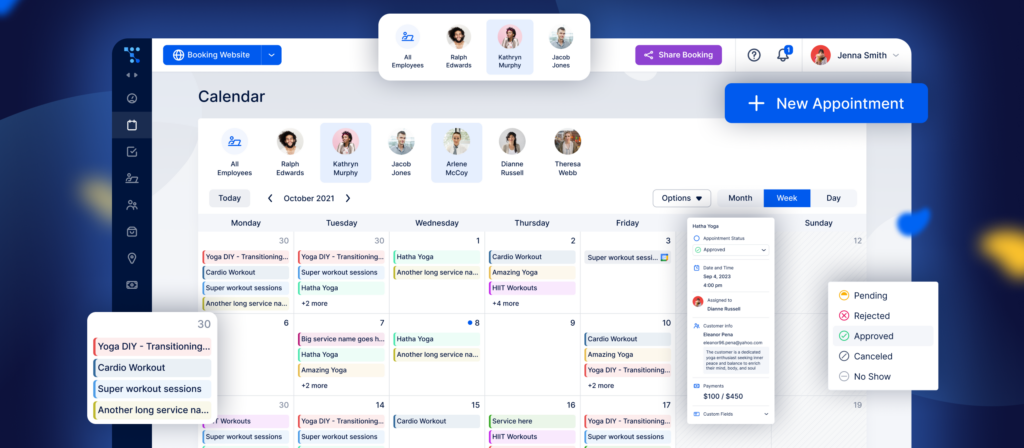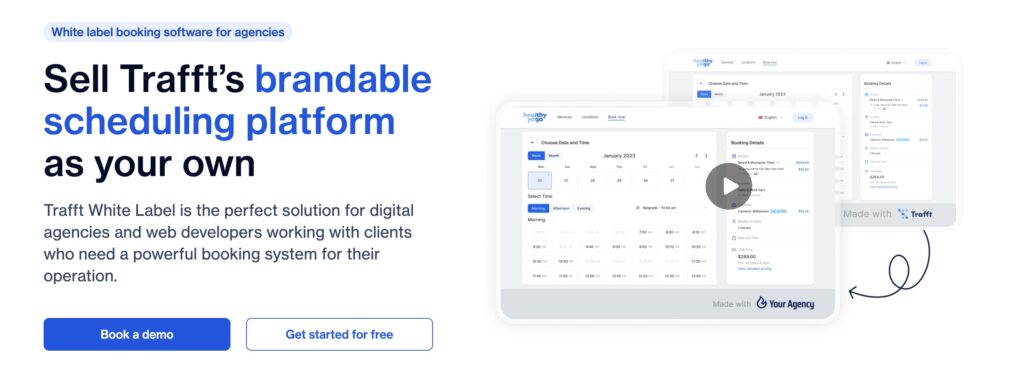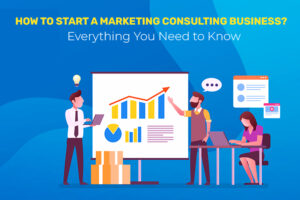When you imagine conventional business processes, perhaps you picture long-winded emails, paperwork piling up, and mistakes that generate chaos.
Current markets are ever-changing, the demand for swift decision-making is constant, and future-proof plans are a necessity. An evolving business process requires proposals and outcomes that will take your venture to its next phase. As a comedian once put it, “Modern problems require modern solutions.”
It doesn’t get more modern than working along with a business automation consultant. They will assist you with setting up a deep learning system or machine learning (ML) formula for your team to implement. They can also work to enhance your existing automation program.
What is a Business Automation Consultant?
A business automation consultant is a skilled professional who collaborates with businesses to identify opportunities for automation and implement tailored solutions. If you’re a small business automation consultant, you basically act as catalysts for change, employing your expertise to optimize processes, and workflows, reduce manual intervention, and integrate technologies that elevate operational efficiency.
The Importance of Automation Consulting
The importance of process automation consulting lies in its transformative impact on operational and strategic aspects of business. As businesses navigate the complexities, automation consultants play a crucial role in shaping strategies, implementing innovative solutions, and ensuring that automation becomes a driving force for success. Automation consulting is not just about operational efficiency but is increasingly central to strategic decision-making. For instance, 31% of businesses plan to hire AI expertise to leverage automation for streamlining workflows, reducing errors, and reallocating employee focus to strategic tasks. This trend highlights the growing reliance on automation consultants to guide organizations through the complexities of adopting cutting-edge technologies, such as robotic process automation and AI-driven tools.
As an automation consultant, you’ll probably tackle one or more of the following issues:
Operational efficiency
One of the primary objectives of automation consulting is to unlock operational efficiency by streamlining and optimizing processes. Automation consultants analyze existing workflows, identify bottlenecks, and implement solutions that reduce manual efforts, minimize errors, and enhance overall productivity.
Technology
Businesses need to adapt swiftly to stay relevant. Automation consultants serve as guides in navigating emerging technologies, helping organizations integrate innovations such as robotic process automation (RPA), artificial intelligence (AI), project management, and machine learning into their operations.
Strategic decision-making
Automation consultants empower businesses with data-driven insights. By implementing automation solutions that capture and analyze crucial data points, businesses gain a deeper understanding of their operations. This knowledge facilitates informed decision-making, strategic planning, and a proactive response to market changes.
Accelerating time-to-market
In industries where time-to-market is critical, automation can significantly expedite processes. Automation consultants design and implement solutions that reduce lead times, ensuring products and services reach the market faster. This agility is a key competitive advantage in today’s fast-paced business environment.
Improving customer experience
Automation has a direct impact on customer experience. Consultants work on automating customer-facing processes, leading to quicker response times, personalized interactions, and improved service quality. The result is heightened customer satisfaction and loyalty.
Cost savings
Businesses are always seeking ways to optimize costs without compromising quality. Automation consultants contribute to cost savings by reducing the need for manual labor, minimizing errors, and improving resource allocation. The return on investment (ROI) from automation initiatives can be substantial.
Understanding The Roles and Functions of an Automation Consultant
What exactly is business process automation? Digital transformation, also referred to as business automation (BPA), is the application of tech-based automation to intricate business processes. This technology system streamlines business operations through simplification.
It facilitates a digital transformation, improving the quality of services, boosting service delivery, and cutting down on expenses. Automation consultants work to incorporate applications, adjust labor resources, and use software applications across the company.
Automation no longer means running a huge technical infrastructure with a team of trained experts. Now, most companies, big or small, have much to gain from upgrades in cloud-based automation platforms. It’s a good idea to contract with a business automation consultant for help to get started.
A good automation consultant is an analytics expert and productive as both a team player and when working alone. Someone considering this field would have to complete four years of training after high school and gain on-the-job experience with an internship.
Examples of key functions for this role include:
- Being the Salesforce Marketing Cloud (SFMC) virtuoso when it comes to designing, sustaining, and developing the digital marketing platform (emails, newsletters, social media posts, etc.) alongside the marketing communications team and company ‘think tank’.
- Knowing the ins and outs of Cvent (software-as-a-service). You’ll create, maintain, and develop all events, working with both the events team and Cvent end users.
- Being on-site to lend your expertise in supporting the continuous upkeep and development of both direct and event marketing technology.
- Joining forces with business and marketing teams to develop campaign strategies, share creative input, test design concepts, conduct QA/QC, oversee concept implementation, and get relevant feedback.
- Working with the business’s marketing and communications teams to streamline critical productivity and creative operations tasks. Increasing the application of templates, active content blocks, and personalization and operational efficiency tools.
- Guiding data integration activities using SalesForce (a CRM platform). This entails audience targeting, creating lists, personalization, lead scoring, and campaign feedback.
- Assisting the continuous development and improvement of campaigns. Review the outcomes of trial runs, extract practical data from those results, and provide fresh ideas for upcoming tests and program upgrades.
- Setting the goal of working along with the company’s corporate compliance arrangement. This will enable you to obtain the required approvals, guarantee CAN-SPAM compliance, foster best practices for permission, and unsubscribe management.
A business automation consultant may need to offer continuous support for applications after their installation. Duties could involve troubleshooting various issues as they occur and training employees to run automated operations using new tools. In some cases, troubleshooting might require using advanced solutions like a Selenium proxy to optimize web scraping or testing automation. This tool can help ensure smoother operation, particularly when dealing with dynamic web content or ensuring reliable interactions with web applications.
Essential skills and know-how of automation consultants
- Capable of quickly learning and mastering selected automation software, technology, and tools.
- Reliable and able to meet deadlines.
- Fulfill a variety of functions in a particular project and carry out responsibilities required at various levels, even in unstable circumstances.
- Stick to the guidelines and complete work plans; reliable in meeting expectations.
- Grasps and applies methodologies, best practices, and procedures.
- Emphasizes automation solutions and output.Self-motivated and carries out each task successfully.
- Tackle an assortment of technical challenges encountered on the job.
- Exceptional analysis skills and good at finding solutions.
- Exceptional verbal and written communication skills.
- Cooperative and productive team player.
Industries that need automation consultants
Business automation consultants are in high demand across various industries as organizations recognize the need to optimize processes and enhance operational efficiency. Here are specific industries and sectors where the demand for these consultants is particularly pronounced:
Finance and banking
Financial institutions often require automation to streamline complex processes, improve compliance, and enhance customer service. Automation consultants play a vital role in implementing solutions for tasks like transaction processing, risk management, and fraud detection. In this rapidly evolving industry, staying updated with banking technology trends is crucial. Emerging technologies like AI, blockchain, and advanced analytics are transforming how banks operate, offering new opportunities for automation and enhancing the overall efficiency of financial services.
Healthcare
In the healthcare sector, business automation consultants are sought after to streamline administrative processes, manage patient records efficiently, and ensure compliance with regulatory standards. Automation can improve patient care, reduce errors, and optimize resource allocation.
Manufacturing and supply chain
Automation consultants are essential in optimizing manufacturing processes and supply chain management. They help improve production efficiency, inventory management, and logistics, leading to cost savings and increased competitiveness.
Information technology (IT)
IT companies leverage automation to enhance their internal operations, including software development, testing, and IT infrastructure management. A key factor in this process is the importance of digital identity, which ensures secure authentication, access control, and seamless integration across automated systems. By implementing strong digital identity frameworks, IT companies can automate user provisioning, enforce security policies, and streamline workflows without compromising data integrity. Automation consultants in this sector contribute to the creation of more efficient workflows and improved software delivery.
Retail and e-commerce
Businesses in the retail and e-commerce sectors utilize automation to streamline inventory management, order processing, and customer support. Automation consultants help implement solutions that enhance the overall customer experience and operational efficiency.
Human resources (HR)
HR departments across various industries utilize automation for tasks like recruitment, onboarding, and performance management. Automation consultants in HR contribute to creating efficient processes that improve workforce management.
Government and public sector
Government agencies seek automation consultants to streamline administrative processes, enhance citizen services, and improve overall operational efficiency. Automation plays a role in areas such as public service delivery, compliance, and data management.
Automation Consultant Salary and Career Prospects
Certain factors determine how much companies pay automation consultants—experience level, size of the organization, and location of the company.
Automation experts are usually paid by the hour. In the US, consultants can earn in a range of $88, 338 to $132, 506, the average salary being about $110, 422.
Currently, there are three trends shaping what automation consultants do. If they want to stand out from their competitors and maintain a sharp set of skills, they have to keep up to date with current advances in automation processes.
First, businesses are looking for that edge to help maintain or boost their position in the global market. To do so, they need an effective team. Automation consultants boost business optimization using automation tools to get the job done.
Second, automation is becoming widespread, and consultants with expertise will be sought after in every industry. Clients are looking to automate their business’ manual processes in order to compete and stay relevant in an evolving economy.
Third, companies are rapidly automating repetitive processes across multiple departments. This means that the demand for automation consultants will continue to rise since current systems will need maintenance and updates to meet business needs.
Tools You Need as an Automation Consultant
Improving Efficiency and Profitability with Booking Software for Consultants
As an automation consultant, staying ahead means not only optimizing your own processes but also offering innovative solutions to your clients.
Trafft, a leading consulting booking software, provides not just a tool for scheduling consultations but a gateway to efficiency and an additional revenue stream through its powerful white-label solution.
Here’s why every savvy automation consultant should consider integrating Trafft into their business and offering it to clients.
All-in-One Scheduling Solution
Trafft’s intuitive booking system makes scheduling consultations a breeze. Your clients can easily find suitable time slots, reducing the administrative overhead of coordinating appointments. This streamlined process allows you to focus more on delivering exceptional consultation services.
Boost Your Professional Image
With Trafft’s customizable booking pages, you can create a professional and branded interface for clients. This not only reinforces your brand but also instills confidence in clients, showcasing your commitment to a seamless and modern client experience.
Effortless Integration with Your Workflow
Trafft integrates seamlessly with all calendar applications and communication tools, ensuring that your schedule is always up-to-date. This integration minimizes the risk of scheduling conflicts, letting you concentrate on what you do best – providing top-notch automation consulting services.
Maximize Revenue Streams with Trafft’s White Label
Here’s where Trafft takes your consultancy to the next level. The white-label solution empowers you to rebrand the booking software under your own name, offering it as an additional service to your clients. This not only enhances your service portfolio but opens up a new revenue stream.
Become a Trusted Advisor
By incorporating Trafft’s white-label solution into your offerings, you position yourself as a comprehensive solution provider. Your clients will appreciate the added value of an integrated booking system, and you become a trusted advisor offering end-to-end automation solutions.
Customizable for Your Clients’ Unique Needs
Trafft’s white-label solution is not a one-size-fits-all offering. You can customize it to meet the unique requirements of each client. Whether it’s specific branding, tailored features, or industry-specific adjustments, Trafft provides the flexibility to cater to diverse client needs.
Effortless Setup and Management
Implementing Trafft’s white-label solution is hassle-free. The user-friendly interface ensures a smooth setup and ongoing management is a breeze. You can quickly configure the system to align with your clients’ branding and requirements, showcasing your commitment to delivering tailored solutions.
Competitive Advantage in the Consulting Space
Offering a white-labeled booking solution sets you apart from competitors. Clients are always seeking consultants who go the extra mile, and Trafft’s white-label feature positions you as a forward-thinking consultant with a comprehensive suite of services.
Take the Leap, Elevate Your Consultancy
Trafft is not just a consultant scheduling software; it’s a strategic partner in elevating your consultancy to new heights. From simplifying your own scheduling processes to providing an additional revenue stream through the white-label solution, Trafft empowers you to thrive.
Incorporate Trafft into your business, leverage its white-label solution, and position yourself as a consultant who not only understands automation but also anticipates the evolving needs of clients. The future of automation consulting is here, and Trafft is your ticket to efficiency, professionalism, and increased profitability.
P.S. Trafft is free for up to 5 users if you want to try it out before offering it to clients. Sign up now and experience firsthand what we’re talking about!
The Necessary Qualifications for Automation Consultants
Education
A four-year bachelor’s degree with a focus on engineering or IT is a solid foundation to start with. You would need to submit a high school diploma or its equivalency along with a completed admissions form. They may also request your latest standardized test scores accompanied by a high school transcript.
Training and experience
A business automation consultant commonly undergoes on-the-job training. They will learn about the company’s current processes and the software and hardware applied in their current use of intelligent automation.
Courses
There are a variety of courses that benefit a consultant throughout their automation journey. Areas covered might include technologies and operational systems. Skills like problem-solving and data analysis would boost your knowledge of industry products.
An understanding of such concepts is vital since you’d be called to deliver technical support for the personnel involved in promoting the company’s latest tech-based products and services. An in-depth course would equip you with the skill set to pinpoint potential markets for your company’s commodities.
Certification and licensing
Certification can endorse skills that would make any business automation consultant attractive to prospective and current employers. You might hope to enhance your understanding of an automation consultant’s day-to-day functions, solidify the skills you’ve gained, or move up in your career. A certificate or licensing seminar might just be the key.
Computer software retailers with products focusing on automation processes offer certification opportunities as well. You would need to pass any exams required in order to receive a recognized certificate.
Perks of Working with a Business Automation Consultant
Offer the company instruction in automation tools
A company with a business automation consultant has the opportunity to receive specialized personnel and resources to coach and work closely with team members. This enables them to run the latest automated operations.
Detect any gaps in the automation processes

How do you compare the overall performance with the proposed performance plan? You conduct a detailed gap analysis. It’s a vital task to undertake if you’d like to know which ideas work and which fall flat in the application of business process automation.
Economization of resources and time
If a company is looking to save time, labor, and monetary resources, it will employ experienced automation consultants to minimize manual labor. Automation consultants focus on workflow by establishing digital systems. This will guarantee the automatic creation of documents and messages. It will also streamline human tasks like supervising the daily work processes.
Access to current automation tools and industry trailblazers
Since they are specialists in their field, automation consultants are knowledgeable about state-of-the-art automation software and tools. Clients can take advantage of the best the market offers and benefit from the specialized knowledge shared by industry movers and shakers.
Save valuable time on labor-exhaustive activities
Automation consultants help companies save time, using their skills and expert knowledge to find solutions to difficulties in running automated operations.
From the consultant’s perspective:
Diverse and challenging projects
Automation consultants often work on a variety of projects across different industries. This diversity keeps their work interesting and allows them to apply their skills to various business challenges.
Professional growth and learning opportunities
The dynamic nature of business automation requires consultants to stay updated on the latest technologies. This constant learning fosters professional growth and ensures that consultants remain at the forefront of industry trends.
High demand across industries
Business automation consultants are in high demand across various sectors such as finance, healthcare, manufacturing, and more. This demand not only ensures a steady flow of projects but also provides opportunities for specialization.
Impactful contributions to businesses
Consultants derive satisfaction from witnessing the positive transformations they bring to client organizations. The ability to make a tangible impact on a business’s efficiency and success is a rewarding aspect of the role.
FAQs about Business Automation Consultants
1. What are some of the most common tools and technologies used for business automation, and how do I choose the right ones for my business?
Business process management (BPM) software, artificial intelligence (AI) tools, robotic process automation (RPA), and other tools and technologies are all used to automate business processes.
A consultant can assist you in selecting the ideal tools for your company depending on your unique requirements and objectives.
2. How do I assess the client ROI of business automation, and what metrics should I track to measure its success?
It might be difficult to evaluate the ROI of business automation, but as a consultant, you can assist clients in determining the most important KPIs to monitor and evaluate. They could, among other things, take the form of process cycle time, transaction costs, and mistake rates.
3. How long does it typically take to implement business automation, and what are the key milestones and deliverables along the way?
The complexity of the operations being automated and the technology being used will determine how quickly it can be implemented.
A consultant should create a realistic schedule and make sure that important checkpoints are reached along the way.
4. How can business automation improve a company’s efficiency, productivity, and overall profitability?
The effectiveness, productivity, and profitability of your firm can all be significantly impacted by business automation.
5. How to start an automation consulting business?
- Conduct market research and identify a niche.
- Define services and create a compelling value proposition.
- Choose a legal structure and register your business.
- Build a professional online presence (website and social media).
- Develop pricing and service packages.
- Invest in essential tools and software for automation.
- Network and build relationships within the industry.
- Create a comprehensive consultation process.
- Offer pilot projects or demonstrations to potential clients.
- Implement a booking system for consultations.
- Develop a marketing strategy to promote your business.
Ready to Dive in for More Fun?
Check out these extra resources to uncover all the details about the consulting business:
- The Business Consulting Software You Need to Succeed
- How to Start an Online Consulting Business: The Complete Guide
- The 30 Best Apps for Consultants
- How to Get Clients as a Consultant
- How Much to Charge as a Consultant
- How to Run a Consulting Business & Be Successful
- How to Promote Your Consulting Business? From A-Z





